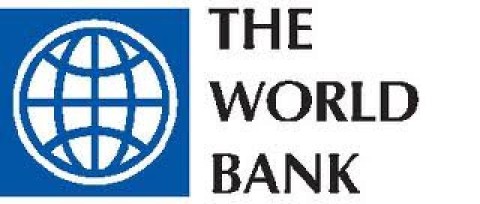SERAP Urges Buhari To Probe World Bank Role In Repatriation Of Abacha Loot
Latest Headlines, News Tuesday, September 8th, 2015
By Ayo Balogun – A new report by the Socio-Economic Rights and Accountability Project (SERAP) has recommended to the government of President Muhammadu Buhari to thoroughly investigate the role and involvement of the World Bank in the repatriation, management and spending of repatriated Abacha stolen funds and other similar funds with a view to ensuring full transparency and accountability in these transactions.
The report also calls on the World Bank to publicly disclose the level of involvement of the bank in the repatriation of Abacha stolen funds and other similar funds to Nigeria, and its role on the management and spending of such funds, as well as the projects on which the funds were spent.
The report wants the World Bank to publicly disclose its involvement in any other ongoing repatriation initiatives to Nigeria, and the mechanisms it is putting in place to ensure transparency and accountability of such mechanisms and the judicious use of repatriated funds.
It urges the Buhari government to revisit and challenge in court unfair settlements in bribery cases by successive governments and repatriation agreement between the government of Goodluck Jonathan and the family of the late General Sani Abacha dated 14th July, 2014 and other similar dodgy and unfair agreements with a view to getting better deals, receiving damages/compensations from companies such as Halliburton, and achieving justice for the Nigerian people.
The 37 pages report launched on Monday at the Westown Hotels, Lagos is titled: “Deterring Kleptocracy: Finding Nigeria’s Re-Stolen Billions and Repatriating Looted Assets.” It discloses that over $3 billion recovered Abacha loot; $87 million stolen funds by the former Inspector General of Police, Tafa Balogun and over $20 million stolen funds by former governor Diepreye Alamieyeseigha among others may have disappeared or been mismanaged by successive governments, and called on the Buhari government to thoroughly investigate the management and spending of the stolen funds.
The report highlights some of the missing recovered funds to include: $1,000,000,000–Swiss’ government Mutual Legal Assistance, up to 2012; $800,000,000 – General Abubakar-led domestic recovery, 1999; $233,795,000– Principality of Liechtenstein’s returned funds, June 2014; $198,484,000 – Ajaokuta Steel Plant debt buy-back case, 2003; $160,000,000– Jersey’s global asset recovery for Nigeria, 2003; and $36,016,200 –Jersey’s recovered funds from Mr. Bhojwani, 2012.
Adetokunbo Mumuni, SERAP’s executive director said: “President Buhari should make sure that never again will the prerogative of mercy be used to save corrupt officials and grant impunity for corruption as it was done by the former President Goodluck Jonathan with respect to corruption cases against Diepreye Alameiseigha.”
“The constitution imposes some ethical conditions on the president to ensure that the exercise of the discretionary power of prerogative of mercy is not such that it will encourage corruption or provide an escape route for perpetrators,” he said.
The report accused former President Goodluck Jonathan of “playing a major role in dislocating the efforts made by his predecessors. There are indicators that informal arrangements were made with his administration to scuttle the asset recovery process, including negotiating a cancellation of all civil litigations against the Abacha family. In addition, during the Jonathan administration, former governor Alamieyeseigha was granted state pardon without serving the full terms for crimes worth millions of dollars in state funds.”
The report also asks the government to “consistently utilise the crime of illicit enrichment (also called: “unexplained wealth,” or “inexplicable wealth,” or “disproportionate wealth.”) to facilitate recovery of stolen assets by high-ranking officials. The illicit enrichment offense criminalizes the “unexplained increase in the wealth of a public official while in office. It targets a significant increase in the assets of a public official that he or she cannot reasonably explain in relation to his or her lawful income, essentially deeming a public official’s unexplained accumulation of significant capital to be a form of corruption.”
“The use of the crime of illicit enrichment is a proportionate and measured response to the pernicious problem of corruption in Nigeria. More than 40 nations, including Argentina and India have successfully used the crime of illicit enrichment to fight corruption and money laundering and there is no reason why this should not be at the forefront of the asset recovery initiative by the Buhari government,” the report states.
The report also asks the Buhari government to improve upon and vigorously enforce laws on financial disclosure to require government officials to annually disclose and widely publish information about their income, assets, liabilities, and positions held outside public office.
It also asked the federal government to establish and maintain a public income and asset declaration database for the President and Vice President and senior public officials (those who would qualify as politically exposed persons), to assist banks in identifying the proceeds of corruption
The report urged the Buhari government to establish mechanisms or expand the mandates of the Presidential Advisory Committee against Corruption to include oversight functions over anti-corruption agencies, in particular the EFCC, the ICPC and the Code of Conduct Bureau and Code of Conduct Tribunal and where appropriate provide the necessary frameworks to make this happen.
It asked government to set up a Looted Asset Fund in the Presidency or Ministry of Finance to provide a framework that would allow the appropriate and transparent management of the proceeds of corruption recovered by the government.
It wanted the government to explore the possibility of referring cases of those suspected of corruption in the military budget to prosecute the conflict with Boko Haram to the International Criminal Court, including under Article 8(2)(a)(iv) on the extensive destruction and appropriation of property; and Articles 8(2)(b)(xvi) and (e)(v) on pillage of the ICC Rome Statute.
Related Posts
Short URL: https://www.africanexaminer.com/?p=25525






















